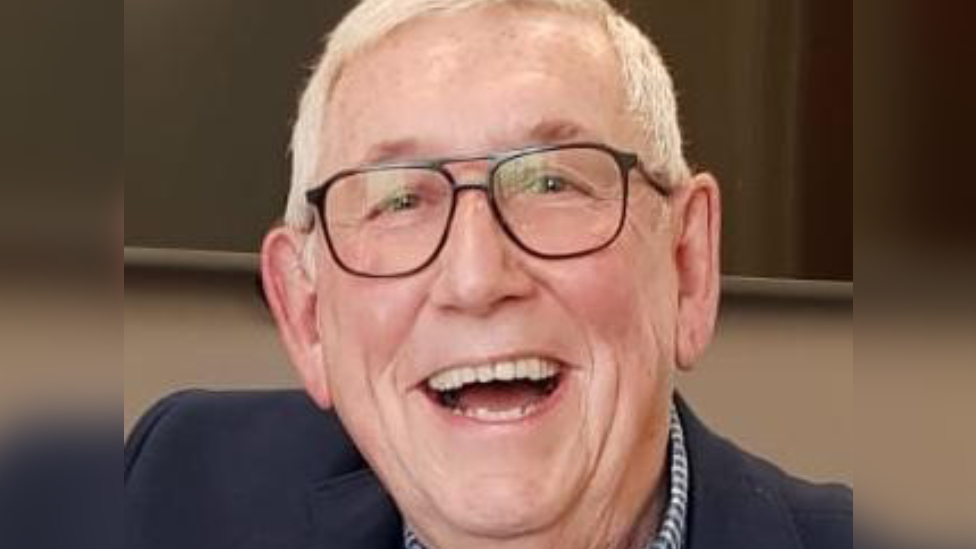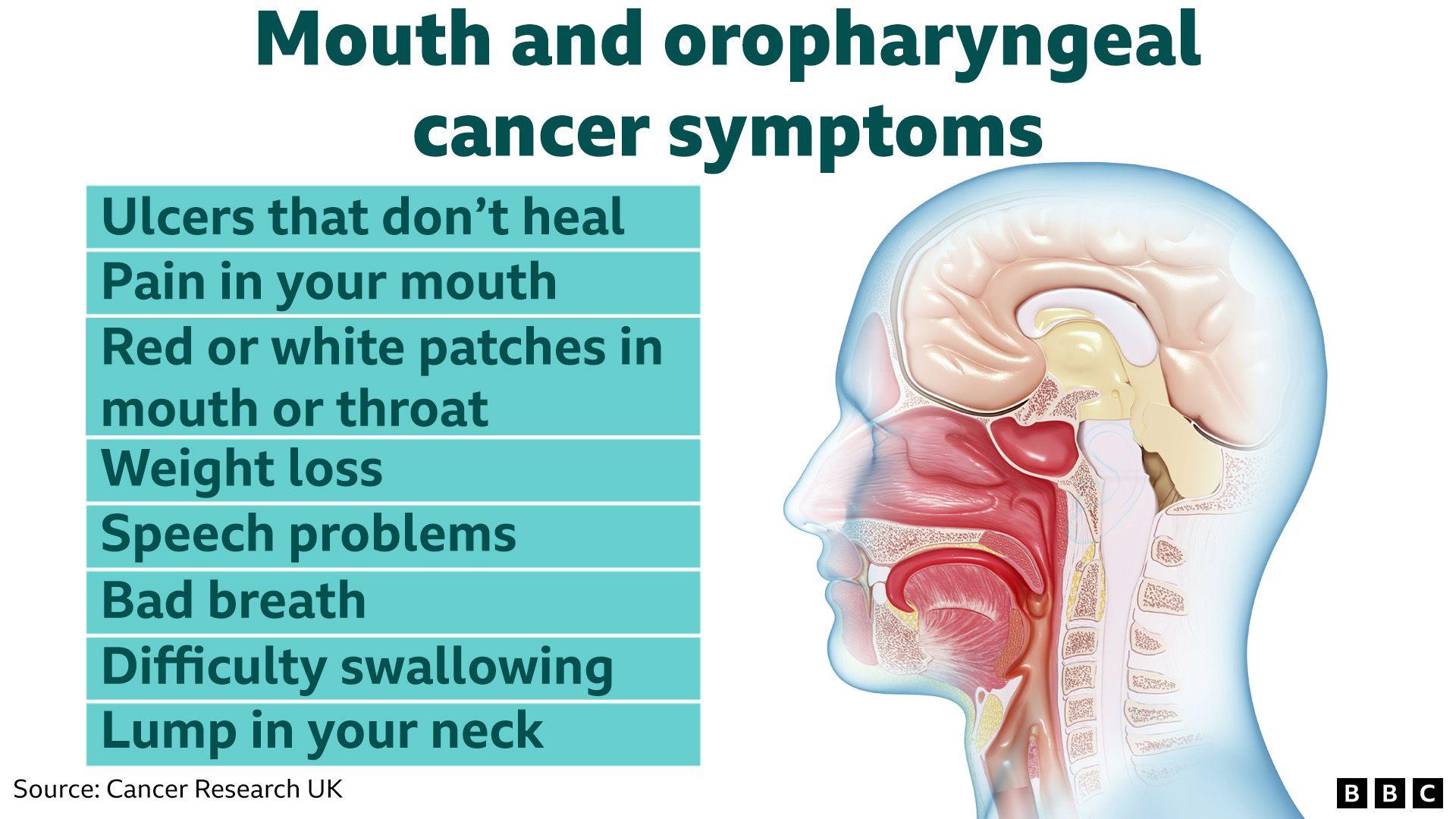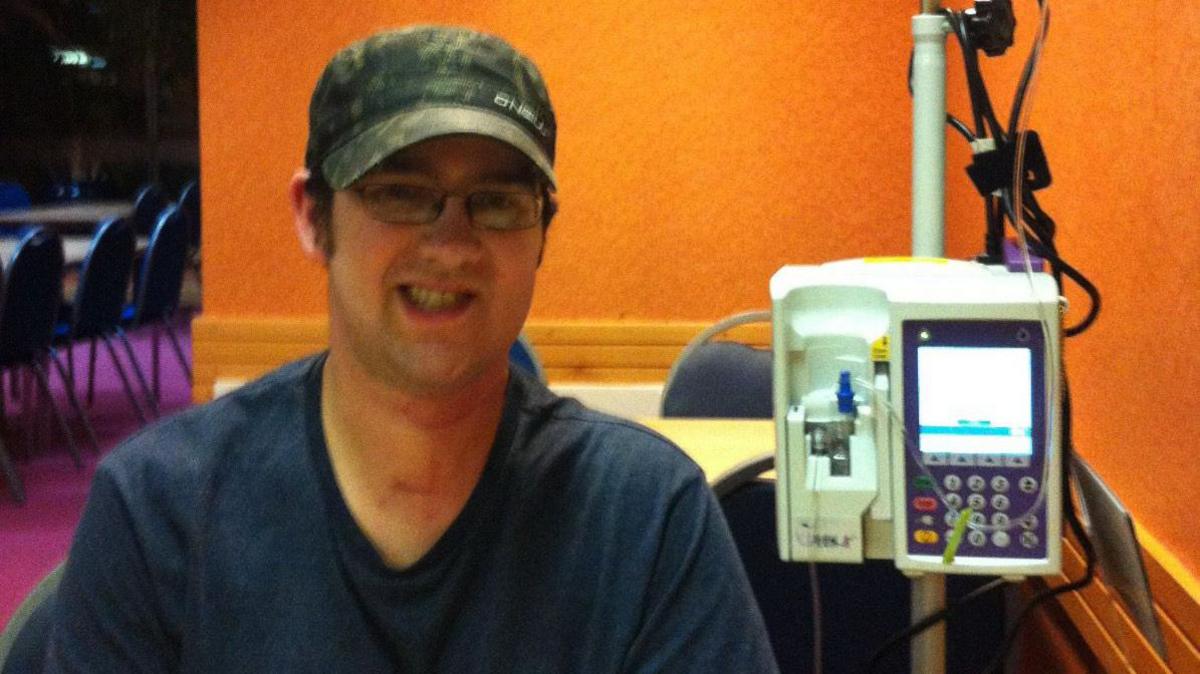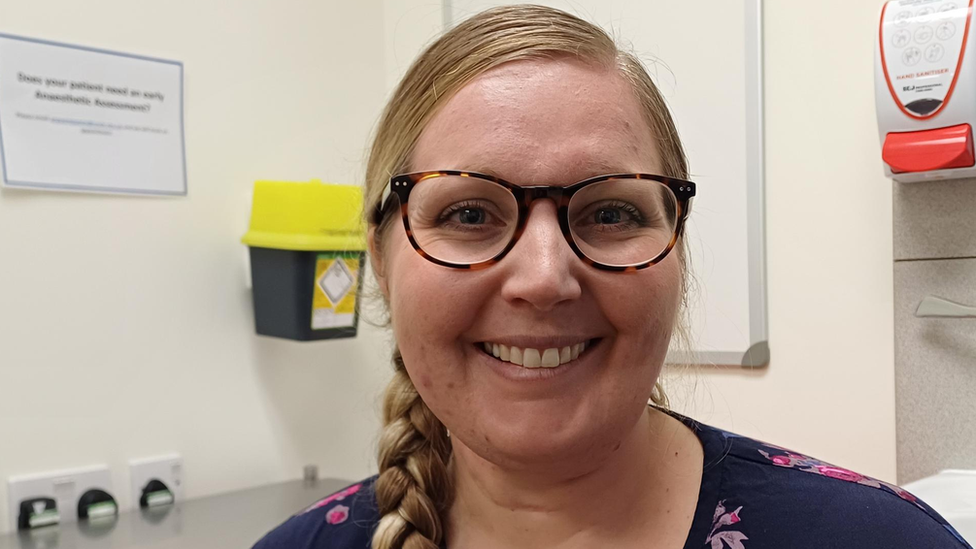Dental care 'critical' amid mouth cancer increase

Bryan Webber, a retired dentist, says he's a "glass half full person" who hopes his experience of tonsil cancer can help others recognise the signs
- Published
A retired dentist who was diagnosed with tonsil cancer says early identification is critical, as new data shows people with symptoms of mouth cancers are not seeking medical help early enough.
Bryan Webber, from Cardiff, went to see his doctor in 2019 after noticing a white patch on his tonsil and feeling a small lump on his neck.
He said his professional experience meant he knew what to look for, but too many people were putting off getting checked.
Half of all mouth cancer cases in Wales are being diagnosed at the most advanced stages, with the number of cases rising each year, a new report from Public Health Wales (PHW) has revealed.
PHW said symptoms could often be mistaken for common oral issues, such as ulcers or infections, delaying essential treatment, with men most likely to delay seeing a medical professional.
Mr Webber said his cancer was caught very early, but even at that point it was “growing very quickly”.
“I went to the doctor, and they immediately sent me for some scans. They did some tests and biopsies and diagnosed carcinoma of the tonsils,” he told BBC Radio Wales Breakfast.
“I was in a lot of pain. I’m a glass half full person, so I got through that, but it was quite a difficult time for everybody including the family.”
Mouth cancer rates increase 'worrying'
- Published22 November 2016
Mouth-cancer deaths fear over NHS dentist shortage
- Published8 November 2023
Mr Webber went through an intense course of treatment at Velindre Cancer Centre in Cardiff, including 33 days of radiotherapy and two rounds of chemotherapy.
He said people in Wales' difficulties getting dental appointments was very concerning.
“Dentists are trained to spot the early signs of mouth cancer, but we need to get patients in there," he said.
“Early identification is absolutely critical."
After overcoming his own health battle, he became an advocate for mouth cancer awareness and now travels around the country giving talks to dentists and dental schools about his experiences and what to look out for.
What are the symptoms of mouth cancer?

The Welsh data, gathered between 2012 and 2021, showed mouth cancer was twice as common in men as in women, with cases peaking between the ages of 60 and 69.
About 120 men died from the disease in 2022, but survival rates are improving, especially among those aged between 15 and 54.
Paul Brocklehurst, a dental consultant at Public Health Wales, said the report should serve as a wake-up call for both patients and healthcare providers.
“Most people are presenting at stage 3 and stage 4… treatment is so much more difficult and survival rates much more problematic at those late stages,” he said.
He said use of cigarettes and alcohol both doubled the risk of getting mouth cancer, while those who used both together were five times more likely to get it.
“There’s been a continual increase and we see the same across the UK,” he said.
“It’s about getting people to recognise those early signs.”
- Published5 November 2024

- Published8 January 2024
